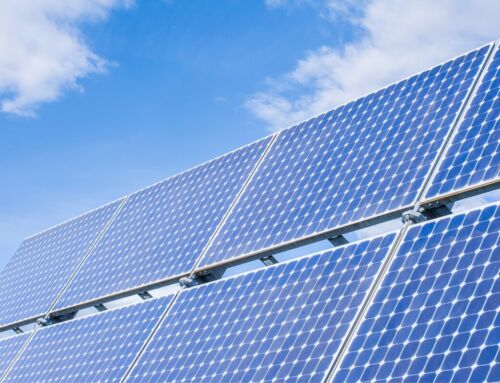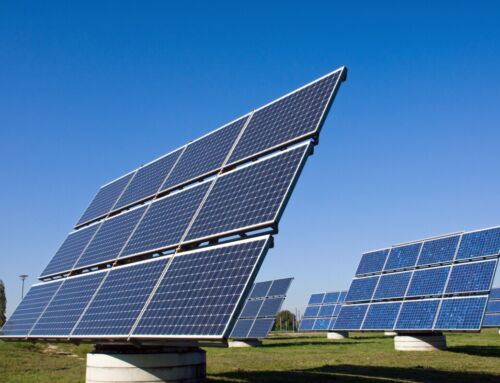Maximize Solar Panel ROI Today
Understanding Solar Panel Return On Investment: What You Need to Know
Are you considering investing in solar panels but unsure about the financial benefits? You’re not alone. Many homeowners and businesses grapple with understanding the Solar Panel Return On Investment (ROI). The good news is that solar panels can offer substantial returns over time, making them a wise investment. Let’s dive into what you need to know about maximizing your Solar Panel ROI.
What is Solar Panel ROI?
Solar Panel Return On Investment refers to the financial gains you receive from your solar panel system compared to its initial cost. This includes savings on electricity bills, tax incentives, and increased property value. By calculating your ROI, you can determine how long it will take for your solar panels to pay for themselves and start generating profit.
Factors Influencing Solar Panel ROI
Several factors can impact your Solar Panel ROI:
- Initial Costs: Installation and equipment costs can vary significantly.
- Energy Savings: The amount you save on electricity bills depends on your energy consumption and local utility rates.
- Incentives and Rebates: Federal and state incentives can significantly reduce upfront costs.
- Location: Sunlight exposure and local climate conditions affect energy production.
Maximizing Your Solar Panel ROI
To ensure the best return, consider these strategies:
- Choose the Right System: Tailor your solar panel system to your energy needs and property specifications.
- Optimize Energy Usage: Implement energy-efficient practices to maximize savings.
- Stay Informed: Keep up with policy changes and new incentives that could enhance your ROI.
By understanding these aspects, you can make informed decisions and enjoy the long-term benefits of solar energy. Investing in solar panels not only contributes to a sustainable future but also offers a promising financial return.
How Long Does It Take to See a Return on Solar Panel Investments?
Investing in solar panels is a smart move for both the environment and your wallet. However, one common question is: how long does it take to see a return on solar panel investments? This is a crucial consideration for homeowners and businesses alike, as understanding the timeline can help in making informed financial decisions. Let’s dive into the factors that influence the Solar Panel Return On Investment and what you can expect.
Factors Influencing Solar Panel ROI
- Initial Costs: The upfront cost of solar panels can vary significantly based on the size of the installation and the technology used. While this might seem daunting, incentives and tax credits can substantially reduce these costs.
- Energy Savings: The amount you save on electricity bills is a major factor. Homes in sunnier regions typically see quicker returns due to higher energy production.
- Maintenance Costs: Solar panels require minimal maintenance, but occasional cleaning and inspections can ensure optimal performance, impacting the ROI timeline.
Typical ROI Timeline
Most solar panel systems pay for themselves within 6 to 10 years. This timeline can vary based on the factors mentioned above. For instance, if you live in a state with high electricity rates and receive ample sunlight, your Solar Panel Return On Investment might be realized sooner. Moreover, as energy prices rise, the savings from solar panels increase, potentially shortening the payback period.
Factors Influencing Solar Panel Return On Investment
Are you considering investing in solar panels but unsure about the return on investment? You’re not alone. Many homeowners and businesses are curious about how quickly they can recoup their costs. The good news is that solar panel return on investment can be quite favorable, but several factors come into play. Let’s explore these factors to help you make an informed decision.
Initial Costs and Incentives
The initial cost of solar panel installation is a significant factor in determining your return on investment. However, various incentives can offset these costs, such as federal tax credits, state rebates, and local grants. These financial aids can significantly reduce the upfront expenses, making solar energy more accessible and profitable in the long run.

Ready to take the next step? Discover how solar energy can elevate your home and reduce those energy bills. Request a Free Solar Estimate at NEW SOLAR QUOTE
Energy Savings and Efficiency
One of the primary benefits of solar panels is the reduction in electricity bills. The amount you save depends on your energy consumption and the efficiency of your solar panels. High-efficiency panels generate more electricity, leading to greater savings and a quicker return on investment. Additionally, net metering programs allow you to sell excess energy back to the grid, further enhancing your savings.
- Panel Efficiency: Higher efficiency panels yield more energy.
- Energy Consumption: Lower consumption increases savings.
Location and Sunlight Exposure
Your geographical location and the amount of sunlight your property receives also impact the solar panel return on investment. Properties in sunny regions typically experience faster returns due to higher energy production. Conversely, areas with less sunlight may require more time to see a return, but the investment can still be worthwhile with the right setup and incentives.
By understanding these factors, you can better assess the potential return on investment for solar panels and make a decision that aligns with your financial and environmental goals.
Maximizing Your Solar Panel Return On Investment: Tips and Tricks
Investing in solar panels is a smart move for both your wallet and the environment. However, many homeowners worry about the Solar Panel Return On Investment (ROI). The good news? With the right strategies, you can maximize your ROI and enjoy significant savings over time. Let’s explore how you can make the most of your solar investment.
Understand Your Energy Needs
Before installing solar panels, assess your household’s energy consumption. This helps in determining the right size and type of solar system for your needs. Key considerations include:
- Current energy usage: Analyze your electricity bills to understand your average consumption.
- Future energy needs: Consider any upcoming changes, like adding new appliances or electric vehicles.
Choose the Right Solar Panel System
Selecting the right solar panel system is crucial for maximizing ROI.
Factors to consider include:
- Efficiency: Higher efficiency panels may cost more upfront but can generate more electricity.
- Durability: Opt for panels with a strong warranty and proven longevity.
Optimize Installation
Proper installation can significantly impact your solar panel ROI. Ensure your panels are installed at the optimal angle and direction to capture maximum sunlight. Consider these tips:
- Professional installation: Hire experienced installers to ensure quality work.
- Regular maintenance: Keep panels clean and free from obstructions to maintain efficiency.
By understanding your energy needs, choosing the right system, and optimizing installation, you can significantly enhance your Solar Panel Return On Investment. These steps not only boost your savings but also contribute to a more sustainable future.
Calculating Your Solar Panel Return On Investment: A Step-by-Step Guide
Switching to solar energy is an exciting prospect, but understanding the financial benefits can be daunting. The primary concern for many is the Solar Panel Return On Investment (ROI). How soon will your investment pay off? This guide promises to demystify the process, helping you calculate your ROI with confidence.
Step 1: Determine Your Initial Investment
To begin, calculate the total cost of your solar panel system. This includes the price of the panels, installation fees, and any additional equipment. Don’t forget to factor in potential tax credits or incentives that can significantly reduce your initial outlay.
Step 2: Estimate Your Energy Savings
Next, assess how much you’ll save on electricity bills. Analyze your current energy usage and the expected output of your solar panels. Consider seasonal variations and any potential increases in energy costs, which can enhance your savings over time.
Step 3: Calculate Payback Period
The payback period is the time it takes for your savings to equal your initial investment. Divide your total investment by your annual savings to find this period. A shorter payback period indicates a more favorable Solar Panel Return On Investment.
Step 4: Evaluate Long-Term Benefits
Beyond the payback period, solar panels continue to offer financial benefits. Consider the lifespan of your panels, typically 25-30 years, and the cumulative savings over this period. Additionally, solar panels can increase your property’s value, offering further financial returns.
By following these steps, you can confidently assess your Solar Panel Return On Investment, ensuring your transition to solar energy is both environmentally and financially rewarding.
The Environmental Impact of Solar Panel Return On Investment
When it comes to investing in solar panels, the benefits extend far beyond financial savings. Solar Panel Return On Investment (ROI) not only promises a reduction in energy bills but also offers significant environmental advantages. The problem many face is understanding how these investments impact the planet. Let’s explore how solar panel ROI contributes to a greener future.
Reducing Carbon Footprint
One of the most compelling environmental benefits of solar panels is their ability to drastically reduce carbon emissions. By harnessing the sun’s energy, solar panels provide a clean, renewable source of power, significantly cutting down on the reliance on fossil fuels. This transition helps lower greenhouse gas emissions, contributing to a healthier planet.
Promoting Sustainable Energy
Investing in solar panels supports the shift towards sustainable energy solutions. As more individuals and businesses adopt solar technology, the demand for non-renewable energy sources decreases. This shift not only conserves natural resources but also promotes energy independence, reducing the environmental strain caused by traditional energy production methods.
- Decreased Air Pollution: Solar energy production does not emit harmful pollutants, improving air quality.
- Conservation of Water Resources: Unlike fossil fuel power plants, solar panels require minimal water for maintenance, preserving vital water resources.
In conclusion, the Solar Panel Return On Investment is not just a financial gain; it’s a step towards a sustainable and environmentally friendly future. By choosing solar, you’re investing in a cleaner, greener planet for generations to come.
Is Solar Panel Return On Investment Worth It for Your Home?
Are you tired of skyrocketing energy bills and looking for a sustainable solution? Solar panel return on investment might just be the answer. The problem many homeowners face is the initial cost of installation, but the promise of significant savings and environmental benefits makes it worth considering. Let’s dive into whether solar panel return on investment is truly worth it for your home.
Understanding Solar Panel ROI
When evaluating solar panel return on investment, it’s essential to consider several factors:
- Initial Costs: Installation can be pricey, but tax incentives and rebates can offset these costs.
- Energy Savings: Over time, reduced electricity bills contribute significantly to ROI.
- Property Value Increase: Homes with solar panels often see a boost in market value.
Factors Influencing Solar ROI
Several elements can affect your solar panel return on investment:
- Location and Sunlight Exposure: More sunlight equals more energy production.
- Energy Consumption: Higher usage leads to greater savings.
- System Size and Efficiency: Larger, more efficient systems yield better returns.
In conclusion, while the upfront investment may seem daunting, the long-term benefits of solar panel return on investment can be substantial. By considering your specific circumstances and potential savings, you can make an informed decision about whether solar panels are a wise investment for your home.
How NewSolarQuote Can Help You Achieve the Best Solar Panel Return On Investment
Are you ready to harness the power of the sun and see your investment grow? Solar panel return on investment (ROI) is a hot topic for homeowners and businesses alike. The problem many face is understanding how to maximize this ROI effectively. At NewSolarQuote, we promise to guide you through the process, ensuring you achieve the best possible returns.
Understanding Solar Panel ROI
Solar panel ROI is not just about the initial cost. It involves understanding the long-term savings on energy bills, potential tax incentives, and the increase in property value. By evaluating these factors, you can make informed decisions that enhance your financial benefits.
- Energy Savings: Reduce your monthly electricity bills significantly.
- Tax Incentives: Take advantage of federal and state tax credits.
- Property Value: Increase your home’s market value with sustainable energy solutions.
How NewSolarQuote Maximizes Your ROI
At NewSolarQuote, we offer tailored solutions to fit your specific needs. Our team of experts will analyze your energy consumption patterns and recommend the most efficient solar panel systems. With our comprehensive support, you can rest assured that your investment is optimized for maximum returns.
- Customized Solutions: Tailored solar plans that suit your energy needs.
- Expert Guidance: Professional advice to navigate financial incentives.
- Ongoing Support: Continuous assistance to ensure your system operates at peak efficiency.
Investing in solar panels is a smart financial decision, and with NewSolarQuote by your side, you can achieve the best solar panel return on investment. Let us help you make the most of your solar journey today!
FAQ
-
How long does it take to break even on solar panels?
Typically 6-10 years, depending on incentives and energy savings. -
What is the average ROI for solar panels?
Most homeowners see a 10-20% annual return on their investment. -
Does solar increase home value?
Yes, homes with solar sell for more and faster than those without. -
Are there financial incentives to improve ROI?
Yes, tax credits, net metering, and rebates lower costs. -
How does location affect solar panel ROI?
Sunny states like Arizona and California offer the highest returns.
Take action today! Save money and protect the planet by going solar. Schedule your no-cost consultation now. Book Your Free Consultation at NEW SOLAR QUOTE
Want to see all your options? Head to FREE SOLAR QUOTES for a closer look at our solar offers.





